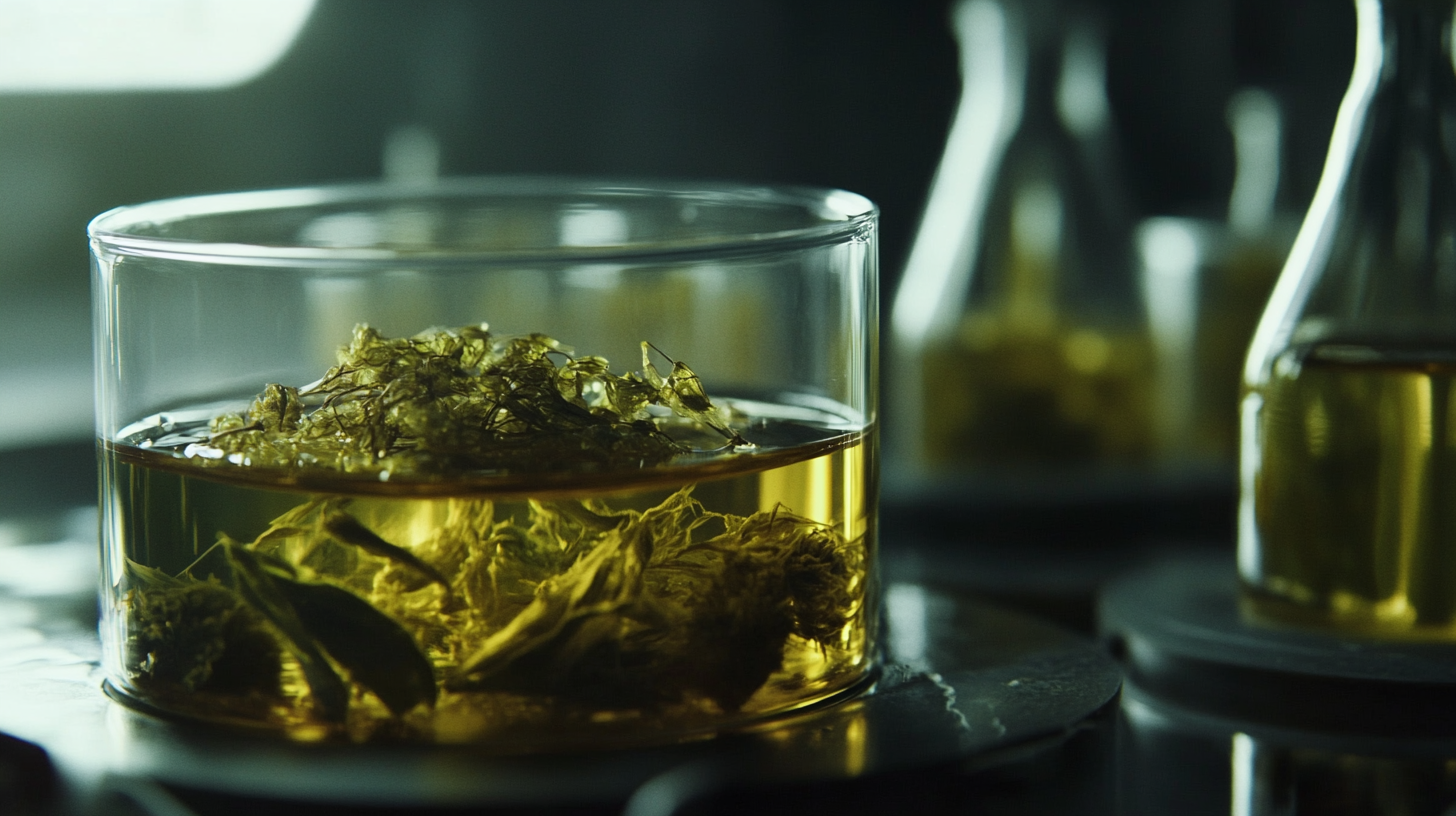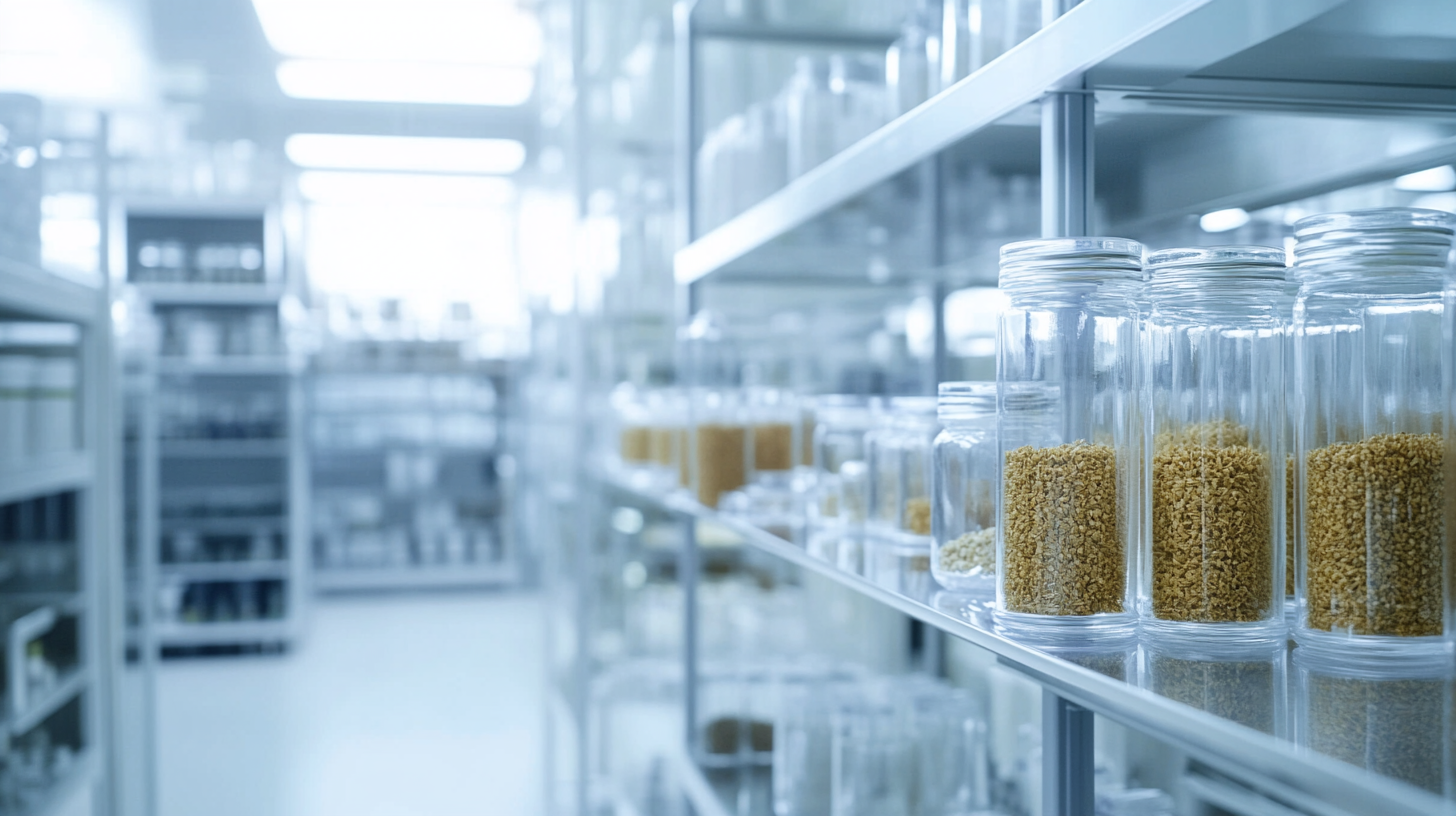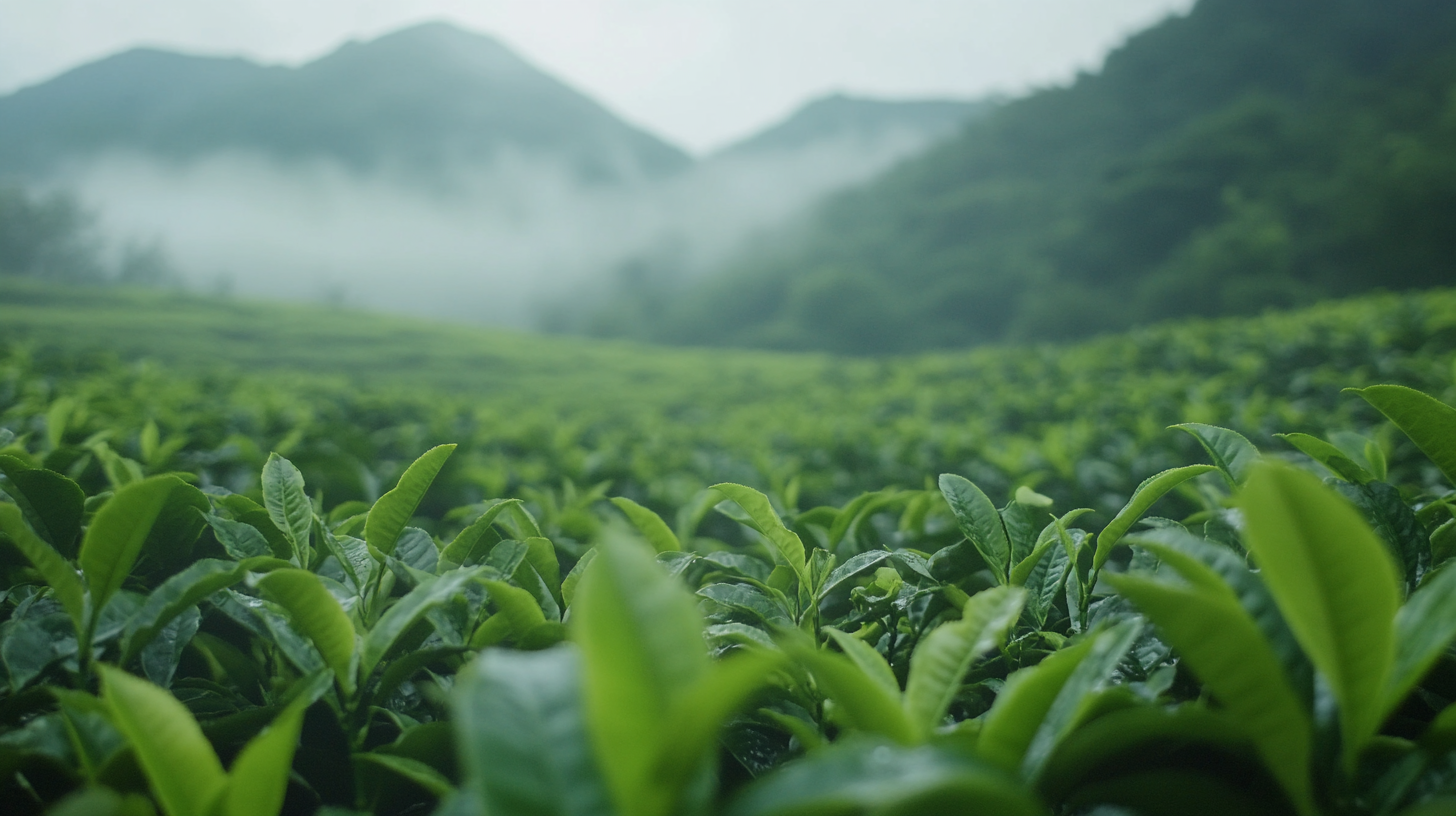50% Response rate
Navigating Global Quality Standards for Sourcing Herbal Extracts Effectively
In the rapidly evolving landscape of herbal extracts, understanding and adhering to global quality standards is essential for effective sourcing. According to a report by Grand View Research, the global herbal extract market was valued at approximately $4.86 billion in 2021 and is expected to grow at a CAGR of 6.4% from 2022 to 2030. This remarkable growth is driven by the increasing consumer demand for natural and organic products, which has led to a surge in the popularity of herbal extracts across various sectors, including food, cosmetics, and pharmaceuticals. As companies seek to capitalize on this trend, they must navigate the intricate web of international regulations and quality standards to ensure product safety and efficacy.
Establishing a robust framework for sourcing herbal extracts not only ensures compliance with industry standards but also enhances brand credibility and consumer trust. The World Health Organization (WHO) has emphasized the importance of quality assurance systems in the herbal medicine sector to prevent contamination and misidentification of raw materials. Moreover, adherence to guidelines set by agencies such as the FDA and European Food Safety Authority (EFSA) is crucial for businesses aiming to operate on a global scale. By understanding these regulatory environments, stakeholders can strategically position themselves within the marketplace, ultimately contributing to the sustainable growth of the herbal extract industry.

Understanding Global Quality Standards for Herbal Extracts
Herbal extracts have gained significant popularity in various industries, from cosmetics to dietary supplements, making it imperative for businesses to navigate the global quality standards effectively. Understanding these standards is crucial for ensuring product safety, efficacy, and compliance with international regulations. Globally, regulatory bodies such as the World Health Organization (WHO) and the European Medicines Agency (EMA) have established comprehensive guidelines that govern the quality of herbal extract products. According to a report by the Herbal Medicine Association, approximately 30% of herbal products do not meet the minimum quality standards outlined by these organizations. This underscores the importance of adhering to quality assessments that include testing for contaminants, authenticity, and proportionate potency. In addition to regulatory compliance, businesses must familiarize themselves with various certification systems, such as Good Manufacturing Practices (GMP) and ISO standards. Research by the American Herbal Products Association (AHPA) indicates that companies that implement stringent quality standards are 50% more likely to have consistent product quality and consumer trust. This critical understanding helps manufacturers source herbal extracts that are not only high in quality but also aligned with consumer expectations and market demands. Furthermore, the demand for transparency in sourcing practices is increasing among consumers. A survey published by Nutraceuticals World found that 75% of consumers prefer products with verified quality claims. By adhering to established global quality standards, manufacturers can not only enhance their market competitiveness but also meet the evolving expectations of a more informed consumer base.

Key Considerations When Sourcing Herbal Extracts
When sourcing herbal extracts, understanding global quality standards is crucial for ensuring both safety and efficacy. One of the key considerations is identifying trusted suppliers who adhere to Good Manufacturing Practices (GMP). Suppliers should have certifications that validate their commitment to quality, such as ISO certifications or organic certifications. These standards not only promote product safety but also enhance consumer trust in the final product.
Another important factor to consider is the sourcing of raw materials. The geographical origin of herbs can impact their chemical composition and potency. It is essential to ensure that the herbs are sourced from regions with a long tradition of herbal medicine and where environmental conditions favor optimal growth. Furthermore, ethical sourcing practices should be a priority to promote sustainability and support local economies, ensuring that the extraction processes do not harm the environment or exploit the communities involved.
Finally, rigorous testing of the final herbal extracts is vital. This includes both qualitative and quantitative analyses to confirm the presence and concentration of active compounds. Collaborating with third-party laboratories for testing can provide an extra layer of assurance regarding the product’s quality. By prioritizing reputable sourcing practices, manufacturers can navigate the complexities of global quality standards, ultimately leading to high-quality herbal products that meet consumer expectations.

Assessing Supplier Compliance with Quality Standards
Navigating global quality standards in herbal extracts sourcing necessitates a rigorous assessment of supplier compliance with these standards. As businesses increasingly operate on a global scale, the need for supply chain transparency has become paramount. Recent studies indicate that transparency not only mitigates risks but also enhances the credibility and competitiveness of manufacturers in the marketplace. By understanding what supply chain transparency entails, companies can establish robust compliance frameworks that ensure adherence to quality standards.
One effective approach for assessing supplier compliance is the implementation of comprehensive audit protocols. For instance, organizations can leverage technology to conduct remote audits and inspections, providing real-time visibility into supplier operations. According to recent industry reports, companies that have adopted such measures report a 30% reduction in compliance-related incidents, thus reinforcing their supply chains against potential disruptions.
Additionally, collaboration with third-party quality assurance firms can greatly enhance supplier evaluations. These firms can assess compliance against international quality standards, providing an objective perspective on supplier capabilities. As the industry prepares for significant policy and market shifts, aligning with quality assurance practices is not just beneficial but essential for sustainable growth and risk management in herbal extract sourcing. With the right strategies in place, businesses can not only comply with existing standards but also position themselves advantageously for future developments in the global market.

Challenges in Meeting International Quality Regulations
Navigating the complexities of international quality regulations when sourcing herbal extracts presents numerous challenges for manufacturers. As global demand for herbal products rises, adhering to stringent quality standards set by various regulatory bodies becomes increasingly vital. Reports indicate that 60% of herbal products sourced globally fail to meet these stringent quality criteria, leading to safety concerns and significant financial losses.
One of the primary hurdles is the inconsistency in global quality standards. Different regions emphasize various aspects of quality control, which complicates the sourcing process. For instance, while the European Union mandates rigorous testing for contaminants, other regions may have less stringent requirements. This disparity can result in unreliable products entering the market, jeopardizing consumer safety and damaging brand reputation.
Moreover, modern manufacturing faces key challenges due to rapid advancements in technology and sustainability. Manufacturers must invest in smart technologies to monitor compliance effectively, which requires substantial capital and a shift in operational strategies. A recent industry analysis suggested that over 70% of companies struggle with integrating digital solutions into their supply chains, which is essential for meeting international quality regulations.
As herbal extract suppliers strive to keep pace with evolving standards, they must prioritize transparency and traceability within their sourcing processes. Enhanced tracking systems can help ensure that raw materials meet required safety and quality specifications. The path forward lies in not only understanding but also adapting to these international standards to foster trust and reliability in herbal extract sourcing.
Best Practices for Ensuring Quality in Herbal Extract Sourcing
Sourcing herbal extracts has become increasingly complex as global quality standards evolve. To ensure that the sourcing process is effective, industry players must adopt best practices that address both quality assurance and regulatory requirements. Companies like Huiren Pharmaceuticals exemplify the importance of adhering to core values, ensuring that every step in the sourcing process aligns with a commitment to public health and safety. Their philosophy of "仁者爱人" (the benevolent care for others) serves as a guiding principle in their sourcing strategies, emphasizing the need for ethical practices that contribute to higher quality standards.
Innovation in development also plays a crucial role in maintaining the quality of herbal extracts. As highlighted by Huason Pharmaceutical's focus on First-In-Class and Best-In-Class products, continuous research and innovation can help drive the standardization of quality in herbal preparations. This is particularly important in a global market that increasingly prioritizes transparency and traceability in supply chains. As companies collaborate and invest in research, they can optimize their sourcing processes and enhance the overall quality of their products, ensuring consumer trust and satisfaction.
Furthermore, the integration of traditional methods and modern technologies is crucial for advancing the quality of herbal extracts. Companies that engage in practices like those seen in Sichuan PuHua's development of classical Chinese medicinal formulas exemplify how blending historical knowledge with current scientific approaches can lead to innovative solutions. Such efforts not only preserve cultural heritage but also meet modern quality demands, creating a sustainable approach to herbal extract sourcing that benefits both businesses and consumers alike.